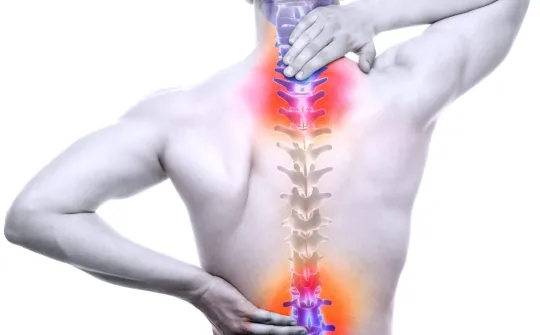
Nerve Compression Surgery
Nerve Compression Surgery Alleviates Uncomfortable Symptoms
Nerve compression, also known as a pinched nerve, occurs when too much pressure is applied to the nerve by the surrounding bone, muscles, and tendons as a result of prolonged or repetitive motions. An untreated pinched nerve in the spine can lead to pain, weakness, tingling, or numbness throughout your upper extremities. Surgery is generally needed when a pinched nerve leads to long-term damage in your arm, elbow, or hand.
Our experienced surgeons at Orthopaedic Specialists of Austin can perform nerve compression surgery at our Leander, TX, practice to relieve the symptoms associated with carpal tunnel, radial nerve, or cubital tunnel syndrome.

The Importance of Treating Nerve Compression
Nerves run from your brain and spinal cord sending signals throughout your body, controlling function and movement. When a nerve is compressed, it not only disrupts its function, but can lead to uncomfortable and painful side effects. It can even cause difficulty in performing normal daily tasks. An untreated compressed nerve can result in irreversible damage.

Types of Conditions Linked to Nerve Compression
Without treatment, nerve compression can lead to other painful conditions, including:
Carpal Tunnel Syndrome
Radial Nerve Syndrome
Cubital Tunnel Syndrome
What Treatments are Offered?
When nonsurgical treatments, such as braces, splints, medications, steroid injections, and adjustments to your physical activity are ineffective, surgery may become necessary. The type of procedure recommended will depend largely on the location of your nerve compression.
For patients suffering from carpal tunnel syndrome, we offer surgical treatment. During this procedure, an incision is made in the palm of your hand so the doctor can divide the carpal tunnel to create more space and alleviate pressure on the nerve. During radial tunnel surgery, incisions are made on any parts of the tunnel compressing the radial nerve in order to expand the space and relieve pressure.
For patients with a compressed ulnar nerve, the doctor can perform cubital tunnel release. During this procedure, the ligaments within the cubital tunnel are divided or relocated, preventing the nerve from getting trapped or improperly stretched when the elbow is in a bent position or in motion.
